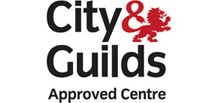

History of Czech Higher Education
There are numerous points of view regarding when higher education started its development in the Czech Republic. Most sources refer to the Charles decree which founded Charles University in Prague and consequently consider the start date as 1348. Although some ancient scholars conducted lectures before this date, the university with 4 faculties (legal, free art, theological and medical) is still considered the bedrock of Czech higher education. But it should be mentioned that higher education at its outset and during the early years was accessible only for a small group of people.
Naturally, one university could not provide the whole region with sufficient academic training, which is why in the year 1566, a new university was founded in the city of Olomouc, which was later given the name Frantisek Palacky.
Later, new universities and new faculties were opened in order to keep pace with the needs of that period. The most remarkable are the Czech Technical University that opened in 1707, and the Fine Arts Academy.
At the beginning of the 20th century, higher education became generally accessible, new educational institutions were founded, and more and more academics were gathering in Prague and other Czech cities.
During World War II, German occupants closed all universities in Czechoslovakia, and Czech universities could only get back to regular work after 1945. This hiatus was a spur to establish new universities in Czechoslovakia.
After 1948, when communists came to power in Czechoslovakia, the country fell under the USSR sphere of influence. It meant that higher education programs and professors were under ideological pressure to be biased.
But classical education traditions didn’t disappear in these 40 years — on the contrary, they got new stimuli to evolve and gain a foothold in the world of international education.
In 1999 there were two important changes in Czech education: payment for foreigners was abolished, and the first private universities got licenced and were authorised to teach their academic programmes.


